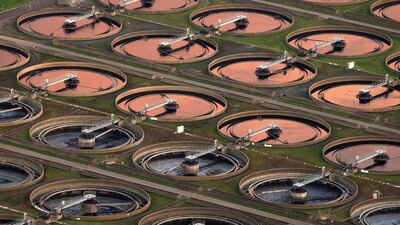The Arabian Gulf countries are embracing privatisation, both to fund the investments necessary in their economic visions, and as a way of improving performance within these organisations, but how should they consider regulating these industries?
By privatising, governments try to use profits as a strong, organic incentive for the company to cut costs and to develop more efficient production techniques and better quality services. In industries such as telecommunications, as GCC citizens have seen, this works well.
However, in some industries, the cost structure means that only one company can operate efficiently, known as a “natural” monopoly. Electricity and water, due to their incredibly expensive infrastructure requirements, fall under this class. Under these circumstances, the absence of competition means that the profit incentive also pushes the company toward charging high prices, which hurt consumers. This is why we need regulation.
Note, however, that the regulator cannot micromanage the company, as that would represent de facto nationalisation, which would put us back to square one. Instead, the regulator has to operate in a manner that balances the benefits of the profit motive (lowering costs, developing technology) with the ills (high prices) that emerge in the absence of competition.
If the regulator forces prices too low, the company might not be able to cover its costs. If it is too lax, consumers will be harmed. Critically, the regulator is missing the most important piece of information, which is the true production cost: the company has a strong incentive to inflate its declared costs, so as to secure a higher permitted price. This turns regulation into a game of cat and mouse: if the regulator responds by capping profits, then this undermines the company’s incentive to innovate, as it won’t be allowed to reap the benefits of a better product or lower production costs.
To mitigate against the company’s efforts at misrepresenting its costs, the regulator can hire industry experts who have inside information on the true production costs. But this leads to a potentially bigger problem, referred to as "regulatory capture": the creation of an incestuous relationship between the regulator and the regulated company, which transforms the regulator into the company’s client, rather than its overseer.
To see how this works, suppose a government decides to privatise water. The cost structure means that it has to be a monopoly, so the government creates a regulator. It needs local experts to operate the regulator, and the best - and possibly only - place to find them is the newly privatised water company. These people have a lifetime of personal relationships with their soon-to-be ex-colleagues in the water company, so it is difficult for them to develop the impartiality necessary to regulate well.
_______________
Read more:
Economics 101: When is privatisation a good idea?
Economics 101: The coming trade war offers opportunities for Arabian Gulf countries
_______________
Moreover, the company has a strong incentive to offer its new overlords over-the-table and under-the-table "incentives" that further undermine the regulator’s mission. The most frequent example is the tacit promise of a highly lucrative board seat on the private monopoly once the ex-employee’s term at the regulator ends.
Governments’ earnest attempts to counteract regulatory capture usually fail. In fact, companies often embrace regulators because they can manipulate them into passing regulations that help protect the company, usually by limiting entry. This happened a few weeks ago when Facebook chief executive Mark Zuckerberg was testifying before Congress: he proposed the establishment of a regulator. Before you applaud what superficially appeared to be a sacrifice in the general interest, it was more likely a cunning commercial ploy for Facebook to fortify its commercially-created monopoly with regulatory armour, because of Facebook’s confidence in its what it feels is an ability to influence its regulator. After all, where is Congress going to find people who know Facebook well enough to regulate it? Facebook!
However, there are two policies that the Gulf countries may wish to consider when privatising. The first - exemplified by the UK’s water privatisation - is “yardstick competition”. Rather than creating a national monolith, the UK government created regional monopolies, and then played them off against each other in the pursuit of accurate cost information. The regulator allowed each company to set prices a fixed percentage above its estimate of a reasonable production cost and it estimated that cost by (approximately) taking the smallest declared cost among the regional companies. Like an auction, this created an incentive for the monopolists to lower their true costs. In the Gulf, larger countries could adopt such a scheme by exploiting their natural geographical subdivisions: provinces in the case of Saudi Arabia, and emirates in the case of the UAE.
As a partial antidote to regulatory capture, the Gulf countries should consider hiring experts from other GCC countries as their regulators. For example, Kuwait might hire former senior executives from the Oman airport authority to regulate privatised Kuwaiti airports.
The most important lesson for the Gulf countries, however, is that even the best regulators are flawed, and that there is no substitute for competition as an accountability mechanism. Sometimes, new technology transforms a natural monopoly into an industry where competition is possible: this happened with the advent of wireless technology in telecommunications.
Therefore, resources must be dedicated to developing technologies that enable competition.
Omar Al-Ubaydli (@omareconomics) is a researcher at Derasat, Bahrain.

